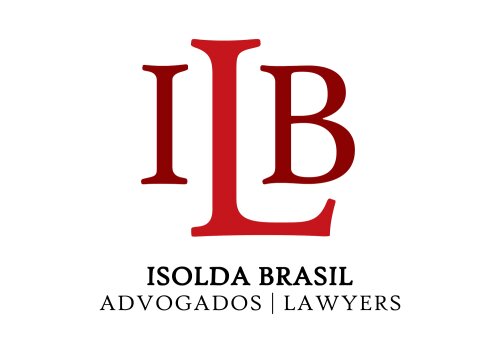Best Investment Lawyers in Portugal
Share your needs with us, get contacted by law firms.
Free. Takes 2 min.
Or refine your search by selecting a city:
List of the best lawyers in Portugal
About Investment Law in Portugal
Portugal has become an attractive destination for investors due to its stable economy, strategic location in the European Union, and favorable business environment. Investment laws in Portugal are designed to encourage foreign and domestic investments across various sectors such as real estate, tourism, technology, and renewable energy. The country's legal framework provides protections for investors and ensures compliance with EU regulations, promoting transparency and fair practices.
Why You May Need a Lawyer
Investing in a foreign country can be complex, and seeking legal advice can be crucial for navigating the regulatory landscape. Common situations where legal help may be needed include understanding local laws and tax regulations, setting up a business entity, negotiating contracts, protecting intellectual property, and resolving disputes. A lawyer can provide guidance on compliance with Portuguese and EU investment laws and offer strategic advice tailored to your specific investment goals.
Local Laws Overview
Portugal has a comprehensive legal framework governing investments, including corporate, financial, and tax laws. Key aspects include:
- Corporate Law: Investors must choose an appropriate business structure, such as a public limited company (S.A.) or a private limited company (Lda), each with specific regulatory requirements.
- Taxation: Portugal offers a competitive tax regime, including the Non-Habitual Resident (NHR) tax scheme, which provides tax incentives to foreign investors.
- Real Estate: Foreign investors can acquire property in Portugal, with legal procedures to ensure transparency and protection of ownership rights.
- Financial Regulation: Investments must adhere to EU and Portuguese financial regulations, especially in sectors like finance and banking.
- Intellectual Property: Protecting intellectual assets is crucial, and Portugal adheres to international treaties on intellectual property rights.
Frequently Asked Questions
What is the Golden Visa program, and how does it work?
The Golden Visa program grants residency permits to non-EU nationals who make significant investments in Portugal, such as real estate purchases or capital transfers. It allows for family reunification and free movement within the Schengen Area.
Are there any restrictions on foreign investment in Portugal?
Portugal generally welcomes foreign investment, with restrictions primarily in areas affecting national security and public interest. Certain sectors may require governmental approval or adhere to specific regulations.
What taxes apply to foreign investors in Portugal?
Taxes for foreign investors can include corporate tax, capital gains tax, and property taxes. The Non-Habitual Resident (NHR) program offers substantial tax benefits to eligible individuals.
How do I establish a company in Portugal?
Setting up a company involves choosing a business structure, registering with the Commercial Registry, obtaining a tax identification number, and complying with legal requirements related to your chosen industry.
Can I invest in Portuguese real estate as a foreigner?
Yes, foreigners can freely invest in Portuguese real estate. The process includes obtaining a tax number, signing a promissory contract, conducting due diligence, and completing the purchase deed before a notary public.
What are the main sectors for investment in Portugal?
Key sectors for investment include real estate, tourism, renewable energy, technology, and agriculture. Each sector offers opportunities aligned with the country's development priorities.
How do I protect my investment in Portugal?
Engaging with a legal advisor ensures your investment complies with local laws. Consider insurance, detailed contracts, and understanding dispute resolution mechanisms as additional safeguards.
Are there incentives for investing in renewable energy in Portugal?
Yes, Portugal promotes renewable energy investments through incentives like grants, tax benefits, and feed-in tariffs to encourage sustainable energy projects.
What should I consider when investing in the technology sector?
Consider factors such as intellectual property protection, data privacy regulations, and government incentives for innovation and technological advancements.
How can international investors handle dispute resolution in Portugal?
Dispute resolution can be managed through negotiation, mediation, arbitration, or court proceedings. Portugal also recognizes international arbitration awards, providing flexibility in dispute resolution.
Additional Resources
For more information on investment in Portugal, consider contacting the following:
- AICEP Portugal Global: The Trade & Investment Agency offers resources and support for investors.
- Chamber of Commerce: Provides networking opportunities and business support.
- Tax Authority (Autoridade Tributária e Aduaneira): Offers guidance on taxation matters.
- National Institute of Industrial Property (INPI): Provides information on protecting intellectual property.
Next Steps
If you need legal assistance with your investment in Portugal, consider the following steps:
- Research and select a reputable law firm or legal advisor specializing in investment law.
- Schedule an initial consultation to discuss your investment goals and legal needs.
- Prepare relevant documents and information ahead of your meeting.
- Discuss fees, timelines, and the scope of legal services provided.
- Make an informed decision based on the legal advice received to ensure your investment complies with Portuguese laws and maximizes potential benefits.
Lawzana helps you find the best lawyers and law firms in Portugal through a curated and pre-screened list of qualified legal professionals. Our platform offers rankings and detailed profiles of attorneys and law firms, allowing you to compare based on practice areas, including Investment, experience, and client feedback.
Each profile includes a description of the firm's areas of practice, client reviews, team members and partners, year of establishment, spoken languages, office locations, contact information, social media presence, and any published articles or resources. Most firms on our platform speak English and are experienced in both local and international legal matters.
Get a quote from top-rated law firms in Portugal — quickly, securely, and without unnecessary hassle.
Disclaimer:
The information provided on this page is for general informational purposes only and does not constitute legal advice. While we strive to ensure the accuracy and relevance of the content, legal information may change over time, and interpretations of the law can vary. You should always consult with a qualified legal professional for advice specific to your situation.
We disclaim all liability for actions taken or not taken based on the content of this page. If you believe any information is incorrect or outdated, please contact us, and we will review and update it where appropriate.
Browse investment law firms by city in Portugal
Refine your search by selecting a city.
















